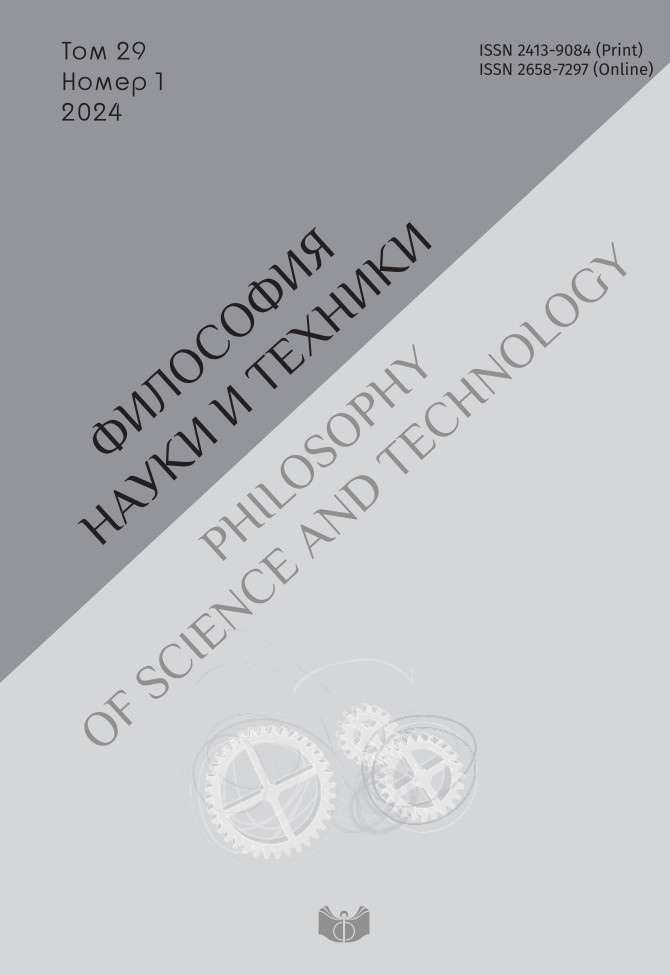Truth and utility in the technical worldview
DOI:
https://doi.org/10.21146/2413-9084-2024-29-1-84-97Keywords:
truth, utility, technology, philosophy of technology, technical worldview, rationality, contingency, artificial nature, artificial and naturalAbstract
The current state of the technical development of mankind can be characterized as a transition to the third artificial environment: the first artificial environment manifests itself in energy processing machines, the second – in information processing machines, the third – in autonomous artificial agents that recieve epistemic and practical access access to reality comparable to human. The conceptual apparatus of describing the problems of interaction between man and the environment, the relationship between technology and science, which is located in the philosophy of technology and in general systemic philosophy, dates back to the New Age and is focused on the state of affairs created in the first artificial habitat. Questions about goal-setting, the image of the future, responsibility that arise when using information processing machines run into the theoretical lack of elaboration and opacity of the epistemic and praxeological practices of the second and third habitats, the confusion of ontological orders, the conditions for the possibility of reference, the misunderstanding of the constitutive role of a person as a subject, uniting heterogeneous layers of reality. A significant current problem of philosophical knowledge is the lack of a unified, synthetic model of cognition and activity adequate to the challenges of the second and third artificial habitats. The purpose of the study is to show the ratio of the categories of truth and utility used to fix and evaluate expedient scientific and technical activities within the framework of the philosophy of technology and the “technical worldview” (P.K. Engelmeyer). The research method is a comparative analysis of the works of the classics of the philosophy of technology against the background of the reconstruction of the spiral of cognition and activity carried out by means of general semiotics. The results of the study fix the state of affairs, according to which the technical worldview contains the scientific one in its removed form, the correspondent truth of knowledge is a condition for the possibility of a useful action. The scientific novelty of the study lies in the formulation of the problem of benefit against the background of a semantic understanding of truth. Relevant to the scientific worldview, the condition-truth theory of meaning is supplemented by the condition-utility: the meaning of a statement is not only the condition under which it is true, but also the condition under which it is useful, that is, technically feasible. The criterion of useful truth of a theory is the efficiency of artifacts built on its explanatory schemes.











